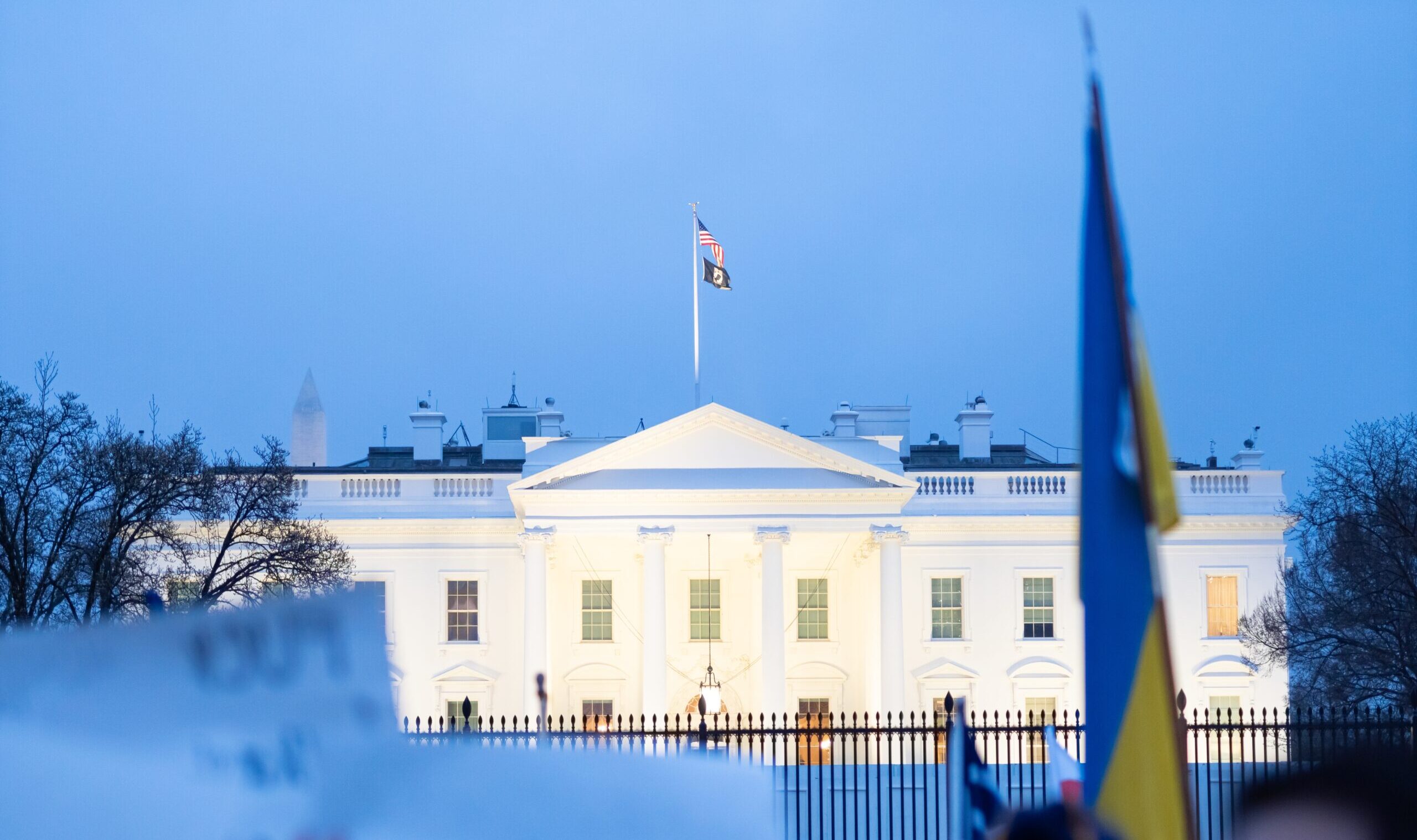Washington on the Knife Edge
Will faltering support for the Ukrainian cause at home and failures on the battlefield make the uniparty warmongers reconsider?

Ukrainian President Volodymyr Zelensky has gone from hero to zero in the space of a few months. The mélange of Western military equipment, from tanks to missiles, in the hands of courageous but unprepared and poorly led Ukrainian conscripts has failed to improve Ukrainian battlefield performance. The resulting hundreds of thousands of Ukrainians killed and wounded are reportedly inducing thousands of exhausted Ukrainian soldiers to surrender. Ukrainian soldiers are tired of dying, and their feelings are justified.
Russian military power rests on the systematic integration of strike assets—rockets, missiles, artillery, drones, and aircraft—with space- and terrestrial-based persistent surveillance. Once Russian forces halted their advance and established a defense in depth in eastern Ukraine, the Russians’ accurate, devastating firepower began swatting the attacking Ukrainian ground and air forces like flies. In the words of a Ukrainian military official, “The sheer number of drones operating in Ukraine, as well as battle-management systems that provide real-time imaging and locations, mean that troops and tanks out in the open have just minutes before they're targeted.”
Without any serious evaluation of Russia’s true military potential, particularly when committed to action on Moscow’s doorstep in Eastern Europe, Washington’s globalist-neocon leadership assured Zelensky that he and his government would have the financial and military backing of the United States and its NATO allies “for as long as it takes.” Like the Poles in 1939 who thought their flight to London had purchased protection from Germany and the Soviet Union, the Ukrainians swallowed the lies. Yet, geography has made it impossible for Washington to assert its dominance in Eastern Europe.
Thanks to the compliant and supportive Western media, Zelensky and his political backers in NATO promised mountains, but delivered molehills. Claims of Ukrainian battlefield successes from the popular “Ghost of Kiev” to the recovery of Bakhmut turned out to be flatulence on steroids. When NATO members met in Vilnius in July 2023, the mood had changed. Ukraine’s fate, let alone its membership in NATO, would be determined by the outcome of the Ukrainian Army’s celebrated counteroffensive.
As Ukrainian losses mounted and Ukraine’s counteroffensive failed catastrophically, things went seriously wrong for Washington, D.C. American political and military leaders callously criticized Zelensky and his senior military leaders for deeply flawed strategic decisions leading to heavy losses of men and equipment. The hunt for an exit strategy from Ukraine without openly calling it such was underway.
The behind-the-scenes split between the national leaders in the U.S. and Europe who embraced the myth of Russian backwardness and those who privately questioned the wisdom of backing one of the most corrupt regimes on the planet against a nuclear-armed Russia began breaking into the open. Viktor Orban, Hungary’s wise and canny prime minister, always rejected Washington’s assurances that Russia’s weakness meant certain defeat for Moscow. Now, more European leaders are adopting his policy stances. Why?
Orban argues that the conflict between Kiev and Moscow “is not our war.” His insistence that Europeans should strive to “isolate it, separate it, prevent it from spreading further” now resonates with Europeans as it becomes painfully clear to more and more Europeans that Putin was not and is not interested in making Ukraine a part of Russia. Moscow’s strategic goal was and still is to prevent Ukraine from becoming a platform for the projection of American and Allied NATO military power against Russia, not to conquer Eastern Europe.
For many of the American and European critics of the dangerous fiasco in Ukraine, it is the breakdown in civil order across the United States and Europe, not Russia, that presents a clear and present danger to Western civilization, not Russia. As seen recently in Philadelphia, the lawlessness in America’s major cities is reaching a new boiling point. Americans want the U.S. judicial system to protect Americans and punish criminals, not mollify them.
In Sweden, the breakdown in law and order is now so acute Sweden’s prime minister has called for the use of Swedish troops to restore order. Europeans and Americans know that the millions pushing through their borders are not asylum seekers or political refugees. The masses are being invited to dilute American and European national identity and culture, overwhelming the American and European capacity to assimilate them.
In their haste to benefit from Washington’s proxy war in Ukraine, the West’s politicians, corporate bosses, hedge fund managers, and media moguls made a serious mistake. They cast their lots with the Washington uniparty; the radical left’s woke agenda and the globalists’ permanent proxy war against Russia. It was a serious miscalculation.
Subscribe Today
Get daily emails in your inbox
Washington and its allies are running out of ammunition, equipment, and domestic support for Ukraine. European armies are without exception boutique forces designed for low-intensity conflict. The Washington uniparty’s feeding frenzy at the public trough has left the U.S. Armed Forces in poor condition to fight enemies other than insurgents. Frankly, it’s a wonder that any young men with both brains and character would want to enlist and live inside today’s armed forces.
The stark truth is that the proxy war in Ukraine is lost, but the habit-forming drug of endless conflict overseas enabled by frenzied defense spending at home seems too strong for Washington’s uniparty to resist. Short of a miracle on the Potomac, Washington’s uncompromising globalist political ideology founded on fear—fear of alleged enemies abroad and fear of free thinking and free speech at home, will drive the Ukrainian nation to its total destruction.
Thus, the descent of the collective West into a Hell of its own making continues. Washington and its NATO allies confront a distasteful choice: Acknowledge Moscow’s legitimate national security interest in Ukraine and end the bloodbath, or risk dragging Europe into a devastating regional war for which Europeans and Americans are not prepared.